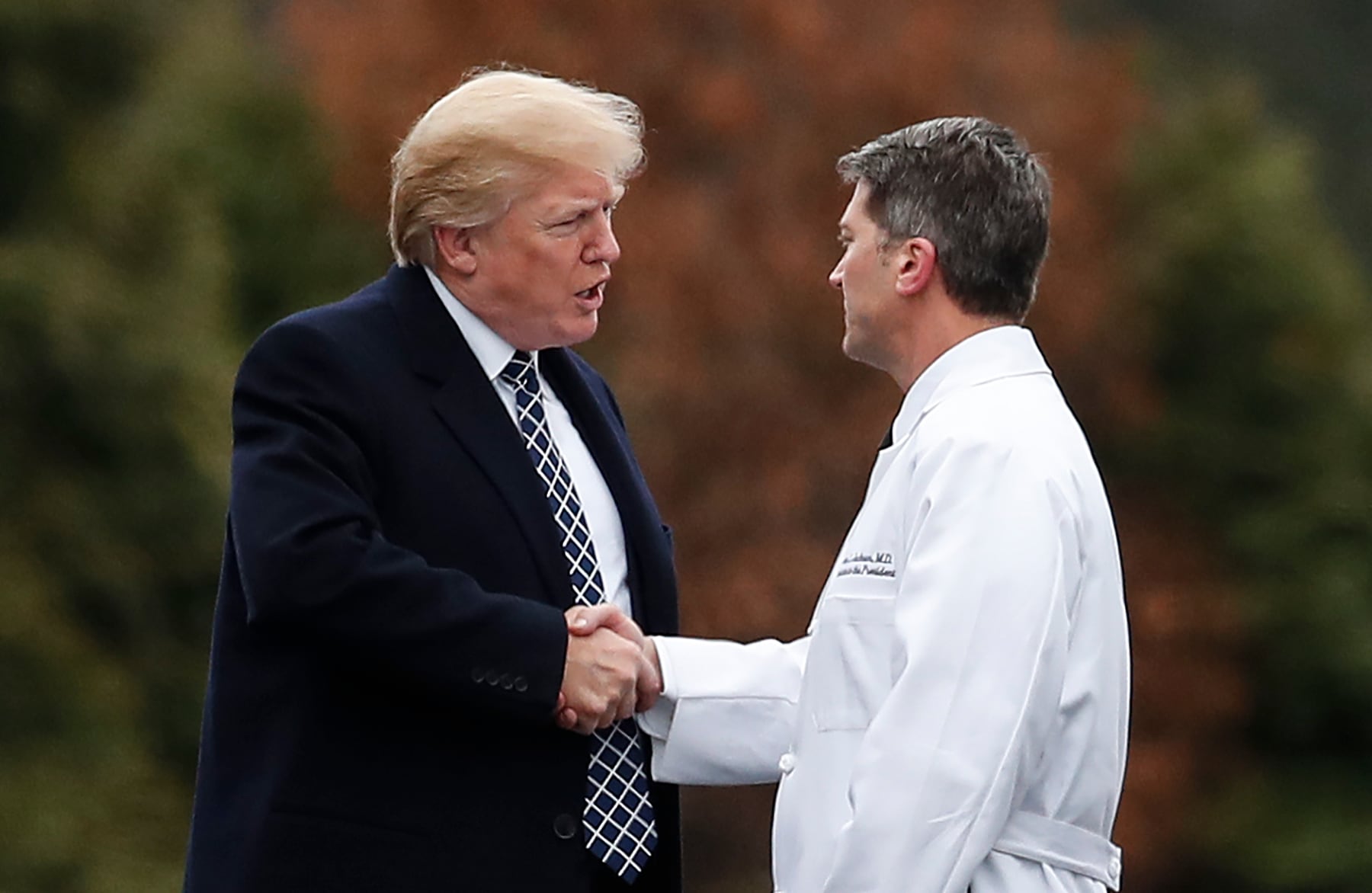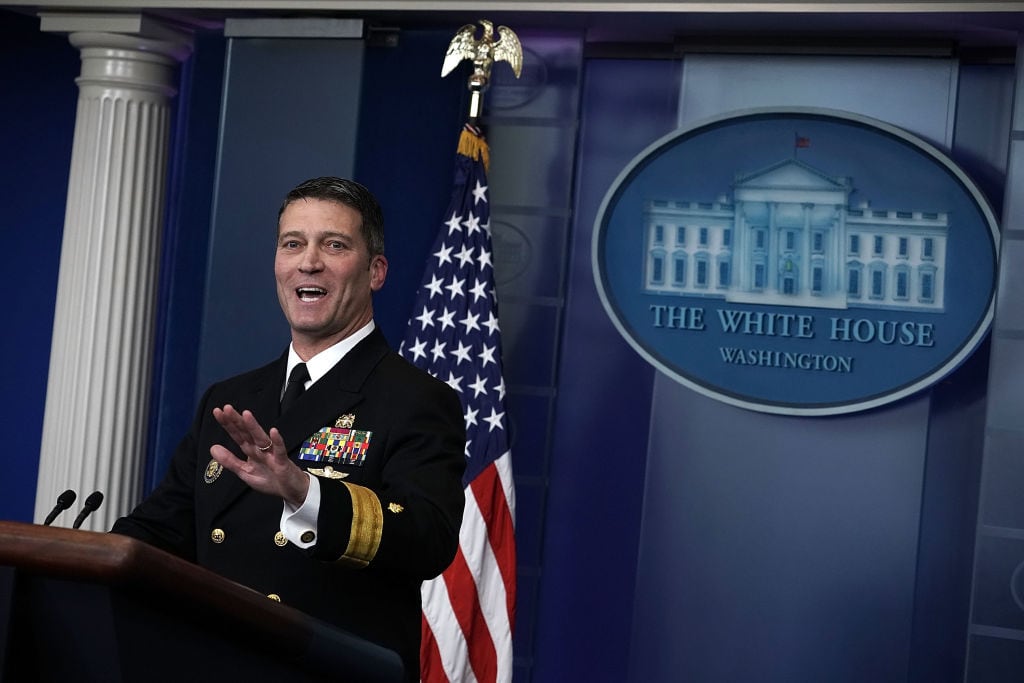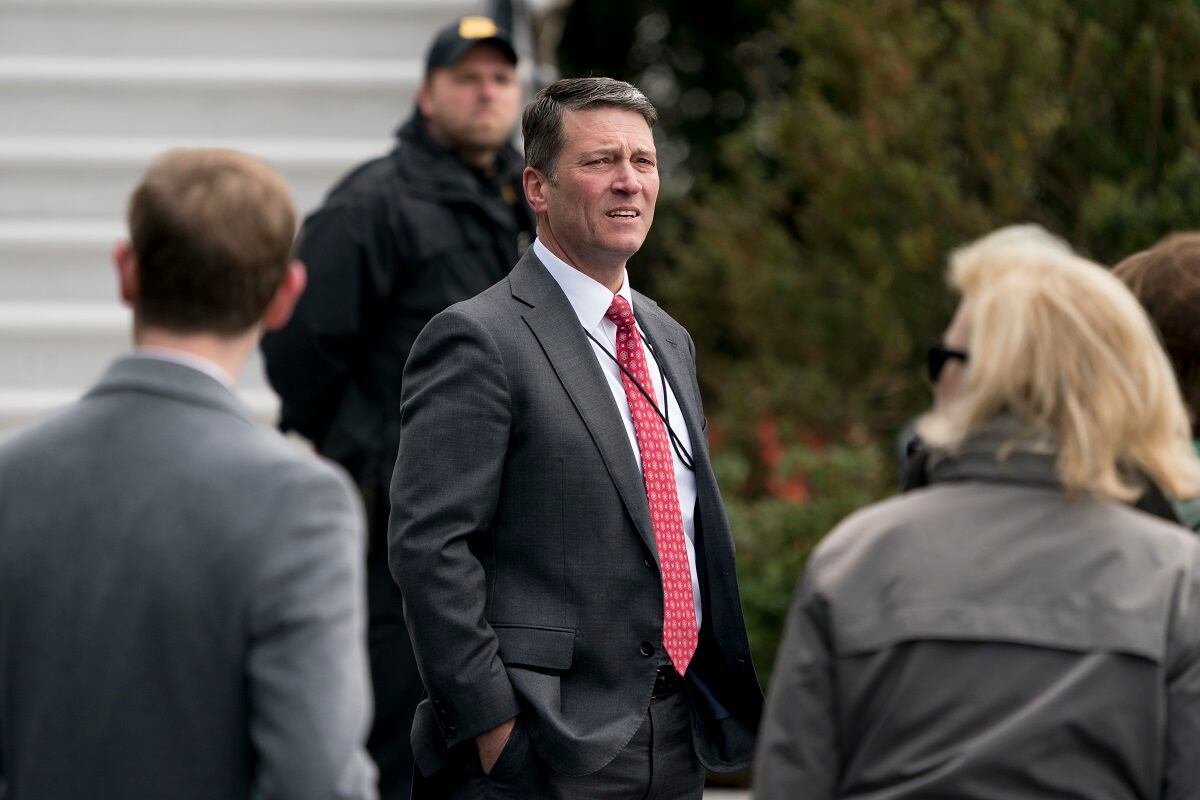WASHINGTON — Ronny Jackson’s nomination to become the next Veterans Affairs secretary could become the most contentious confirmation process since the department was founded 30 years ago.
But that’s also a fairly low bar.
Since the department was elevated to a Cabinet-level post back in 1988, no senator has ever voted against a VA secretary pick. All of the confirmations have been unanimous or near-unanimous votes (with a handful of lawmakers absent), or procedural votes where no opposition was formally recorded.
That includes former VA Secretary David Shulkin, confirmed by a 100-0 vote in February 2017. His total support from the Senate was frequently touted by President Donald Trump in public appearances, including one just a few weeks before Shulkin was fired by the president over social media on March 28.
In fact, no nominee for a confirmable department post over the last 30 years — totaling more than 150 individuals — has ever received a vote of opposition from the Senate, underscoring the non-partisan nature of VA work.
RELATED

That means even a single vote against Jackson’s confirmation could send a message of irreversible political division on the once seemingly untouchable approach to the department issues.
Jackson, who retired from the Navy last week as a rear admiral with 23 years of service, was a surprise nominee for the post. He’s an Iraq War veteran who served under three presidents as the top White House medical officer, and is best known for giving Trump a clear bill of health in January.
But little is known about his familiarity with the department, which boasts a budget this fiscal year of more than $186 billion and a staff of more than 370,000 employees. Senate Democrats have openly questioned the pick, and hinted he may not receive the same support as past nominees.
“I admire Dr. Jackson’s service to the nation, but I don’t know if he is the right person to lead the VA,” Sen. Jack Reed, D-R.I., and ranking member on the Senate Armed Services Committee, said in a statement last week. “The VA is a large and intricate agency that requires steadfast leadership and an understanding of how to run a complex organization.”

Sen. Tammy Duckworth, D-Ill., is a combat-wounded Iraq War veteran and a frequent critic of the Trump administration. Like Reed, she promised to “carefully review Dr. Jackson’s qualifications to determine whether he has the best interests of our veterans at heart.”
But she also accused Trump of wanting “to push VA down the dangerous path of privatization” and warned that “the next VA secretary must be able to protect the department from becoming consumed by partisan politics.”
Former Senate Veterans’ Affairs Committee Chairman Bernie Sanders, I-Vt., similarly said the Senate “should not approve any nominee for secretary who supports the privatization of the VA,” a charge which he has also leveled at Trump. The current top Democrat on the committee, Montana Sen. Jon Tester, said simply that he is “looking forward to meeting Admiral Jackson soon and seeing if he is up to the job.”
Few Republicans in the chamber have offered strong praise for Jackson thus far, though none have offered serious public concerns, either.
No timetable has been set for the confirmation hearings. Senate officials still have not received the formal nominating paperwork from the White House, which will start the background check and confirmation process.
That work typically takes between one and two months. Senate leaders have said they hope to move quickly on the work to ensure a vote on Jackson’s nomination before the summer.
Confirmation votes by the Senate on VA secretary nominees
- David Shulkin, 100-0 (Feb. 13, 2017)
- Bob McDonald, 97-0 (July 29, 2014)
- Eric Shinseki, voice vote (Jan. 20, 2009)
- James Peake, voice vote (Dec. 14, 2007)
- Jim Nicholson, voice vote (Jan. 26, 2005)
- Anthony Principi, 100-0 (Jan. 23, 2001)
- Togo West Jr., voice vote (April 28, 1998)
- Jesse Brown, unanimous consent (Jan. 23, 1993)
- Edward Derwinski, 94-0 (March 2, 1989)
Leo covers Congress, Veterans Affairs and the White House for Military Times. He has covered Washington, D.C. since 2004, focusing on military personnel and veterans policies. His work has earned numerous honors, including a 2009 Polk award, a 2010 National Headliner Award, the IAVA Leadership in Journalism award and the VFW News Media award.





